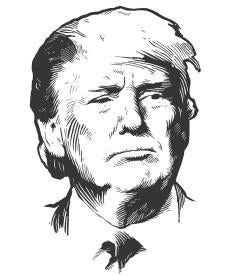The Trump Administration issued a report on its trade agenda, signaling that it will use “a more aggressive approach” than past administrations to discourage unfair trade practices. The report says that trade will be designed to increase economic growth, promote job creation, promote reciprocity with trading partners, strengthen the manufacturing base and ability to defend the country, and expand agricultural and services industry exports. The following highlights the key themes of the report:
-
The Trump administration will use “all possible leverage” to open global markets to U.S. goods and services and rely on strict enforcement of U.S. trade laws in order to aggressively combat unfair trade practices by other countries. The report also noted that the U.S. will not be bound by international settlement mechanisms like the World Trade Organization (WTO).
-
The Trump administration will focus on bilateral negotiations rather than multilateral negotiations. It also calls for renegotiating and revising existing trade agreements (such as NAFTA). The newly confirmed Secretary of Commerce, Wilbur Ross, just announced that the Trump administration will give notice around mid-March to begin the process of renegotiating NAFTA.
-
Four “major” priorities have been identified: (1) defend U.S. national sovereignty over trade policy (2) strictly enforce U.S. trade laws (3) use all possible sources of leverage to encourage other countries to open their markets to U.S. exports of goods and services, and provide adequate and effective protection and enforcement of U.S. intellectual property rights and (4) negotiate new and better trade deals with countries in key markets around the world.
-
WTO decisions that are unfavorable to the U.S. will not automatically lead to a change in U.S. law or practice. This statement is being broadly interpreted as a signal that the U.S. under the Trump administration may prefer to risk retaliatory tariffs in response to adverse WTO rulings. In fact, reports have circulated stating that the Administration may resort to alternative remedies outside of the WTO system.
-
Other mechanisms mentioned specifically in the report include Section 201 and 301 of the Trade Act of 1974, along with the possible self-initiation of antidumping and countervailing duty cases.
-
Under Section 201 of the Trade Act of 1974, the President may impose relief if increasing imports are a substantial cause of serious injury to a domestic industry. The Trade Agenda refers to this as a “vital tool for industries needing temporary relief from imports to become more competitive.”
-
Section 301 of the Trade Act of 1974 authorizes the U.S. Trade Representative (USTR) to take appropriate action in response to foreign actions that violate an international trade agreement or are “unjustifiable, or unreasonable or discriminatory, and burdens or restricts United States commerce.” Investigations leading to these important actions may be initiated either by the private sector or the U.S. Government, and the report explicitly refers to it as a “powerful lever to encourage foreign countries to adopt more market-friendly policies.” Section 301 has not been used since the founding of the WTO in 1994.
-
The Trade Agenda also mentions the self-initiation of antidumping and countervailing duty investigations. Although the U.S. government has always had this authority, it is rarely used.
-




 i
i

